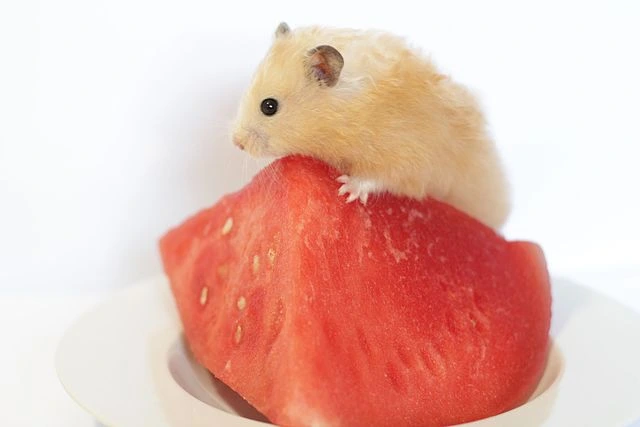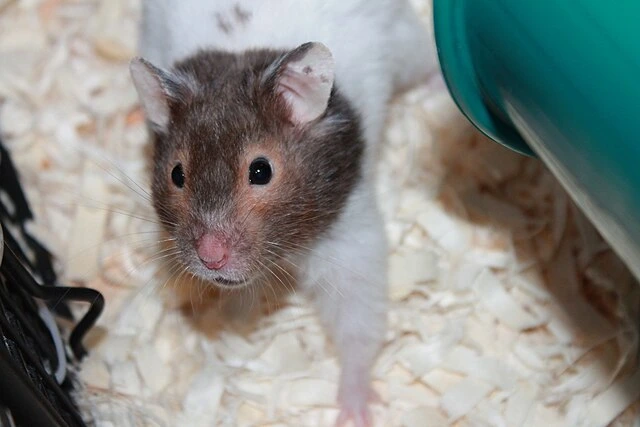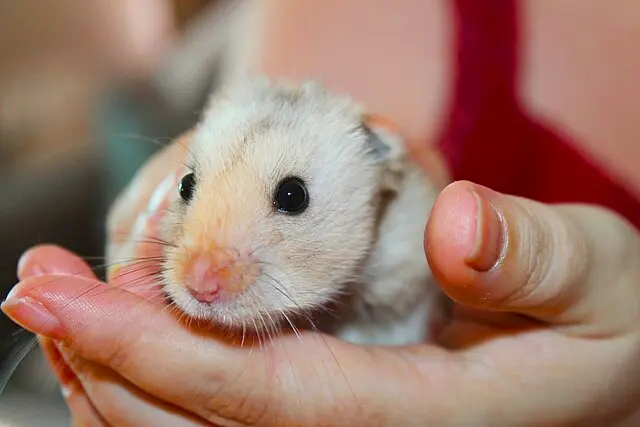Alright, so you’ve decided to welcome a Syrian Hamster into your life. That’s awesome! These little charming magnets, also known as Golden Hamsters or Teddy Bear Hamsters, are the perfect mix of cuteness and low-maintenance care. Let’s dive into everything you need to know about these adorable rodents, from their unique characteristics to their care, health, and socialization requirements.
What Makes Syrian Hamsters Special?
Syrian Hamsters are the most popular and common species of domesticated hamsters, and for good reason! They’re friendly, curious, and super fun to have around. Here are some cool facts about these little guys:
- Size: Syrian Hamsters can grow up to 6-7 inches in length, making them the largest of the hamster fam. This means they need a bit more living space and a bigger exercise wheel.
- Appearance: These cuties come in a bunch of colors and coat types, from short-haired to long-haired (aka “Teddy Bear” hamsters) and even hairless varieties.
- Solitary nature: Unlike some other hamster species, Syrian Hamsters are strictly solitary animals and must be housed alone to prevent serious injuries or even death due to fighting.
Your Hamster’s Crib
Choosing the right enclosure for your Syrian Hamster is key to keeping it happy. Here’s what you need to know:
Size and Type of Cage
Your Syrian Hamster deserves a spacious and secure pad. A minimum cage size of 30 x 15 x 15 inches (LxWxH) is recommended, but bigger is always better. Glass aquariums with mesh lids or wire cages with solid plastic bases are perfect, as they provide good ventilation and are easy to clean. Make sure the cage has closely spaced bars (no more than 1/2 inch apart) to prevent any Houdini-style escapes haha.
Bedding
Give your hamster a cozy place to burrow and nest by providing a thick layer of bedding. Aspen shavings, paper-based bedding, or shredded, unscented tissues all work great. Stay away from cedar or pine shavings, though – the aromatic oils in these woods can cause respiratory issues in hamsters.
Nesting Area
Create a chill nesting area for your hamster, like a hideout or a small cardboard box filled with extra bedding material. This gives your furry friend a sense of security and a comfy spot to sleep and relax.
#ChowTime: What Can They Eat?

Feeding your Syrian Hamster a well-balanced diet is super important for keeping them healthy and happy. But what exactly should you feed them? Let’s break it down!
The Basics: Hamster Food Mix
The foundation of your hamster’s diet should be a high-quality commercial hamster food mix. These mixes usually contain a blend of seeds, grains, and pellets, providing your hamster with the essential nutrients they need. When shopping for the perfect mix, make sure it’s specifically designed for hamsters and has a good balance of protein, fiber, and fat.
Pro tip: Keep an eye on your hamster’s eating habits! Sometimes they can be picky eaters and only go for their favorite bits in the mix, leaving the rest behind. To avoid this, only refill their food dish when it’s completely empty.
Fresh Veggies: A Hamster’s Delight
In addition to their hamster food mix, your little buddy will love snacking on fresh vegetables! Introduce a variety of veggies to their diet, but always in moderation. Some vet-approved options include:
- Broccoli
- Carrots
- Cucumber
- Peas
- Bell peppers
- Leafy greens (like romaine lettuce or kale)
Note: When introducing new veggies to your hamster’s diet, do it slowly/gradually to avoid upsetting your hamster’s tummy. Also, always wash the veggies thoroughly to remove any pesticides or chemicals.
Fruity Treats
Fruits can be a sweet and tasty treat for your Syrian Hamster, but remember – moderation is key! Fruits are high in sugar, so only offer small amounts occasionally. Some hamster-friendly fruits include:
- Apples (without seeds)
- Pears
- Bananas
- Blueberries
- Strawberries
Protein Sources
Your hamster can benefit from a little extra protein now and then. Offer them small amounts of cooked, unseasoned chicken or turkey, or even some tasty insects like mealworms or crickets. These protein-packed snacks should be given sparingly, as too much protein can lead to health issues.
The No-No List: Foods to Avoid
Not everything is safe for your hamster to eat! Here’s a list of foods you should definitely avoid giving to your furry friend:
- Chocolate and other sweets
- Onions and garlic
- Raw beans or potatoes
- Citrus fruits (like oranges or lemons)
- Almonds and other nuts high in fat
- Any spicy or seasoned foods
Fresh Water is a Must
Don’t forget to provide your hamster with fresh water every day! A water bottle with a metal spout is perfect for keeping their water supply clean and easily accessible.
Now that you know what you can feed your Syrian Hamster, you’ll be able to provide them with a balanced and delicious diet that keeps them healthy and thriving. Bon appétit!
Entertainment and Accessories

Keep your Syrian Hamster entertained and active with a variety of toys and accessories. Here are some ideas:
- Exercise wheel: Make sure the wheel is solid (no wire rungs) and big enough (minimum 8 inches in diameter) for your hamster’s comfort and safety.
- Tunnels and tubes: Hamsters love exploring and hiding in tunnels, so grab some cardboard or special hamster tubes for them to play in.
- Climbing structures: Wooden or plastic platforms and ladders are perfect for extra exercise and exploration.
- Chewing toys: Hamsters need to chew to keep their teeth healthy. Provide wooden or mineral chews and untreated, pesticide-free branches from fruit trees.
- Sand bath: A shallow dish filled with chinchilla sand is perfect for your hamster to groom and maintain its coat.
Health & Lifespan
Lifespan
Syrian Hamsters live an average of 2 to 3 years. With proper care, a well-balanced diet, and regular vet check-ups, you can help your little BFF live its best life.
Common Health Issues
Like all hamster species, Syrian Hamsters can have some health issues. Keep an eye out for these common concerns:
- Respiratory infections: Watch for sneezing, wheezing, and discharge from the eyes or nose. If you notice any of these, hit up your vet for treatment.
- Wet tail: This is a bacterial infection causing severe diarrhea and can be super dangerous if left untreated. If you suspect wet tail, call your vet ASAP.
- Overgrown teeth: Provide chewing toys regularly and check your hamster’s teeth to make sure they don’t get too long and cause eating problems.
- Tumors: Syrian Hamsters can be prone to tumors, especially as they age. If you notice any weird lumps or growths, it’s time for a vet visit.
Veterinary Care
Find a vet who knows their stuff when it comes to small animals, preferably one who specializes in exotic pets. Regular check-ups can catch potential health issues early on. If you notice any signs of illness or changes in behavior, don’t hesitate to call your vet.
Bonding With Your Syrian Hamster
To build trust and form a bond with your Syrian Hamster, handle them gently and consistently. Start by letting your hamster get used to your presence and the sound of your voice. Offer treats from your hand to create positive vibes with your scent.
Once your hamster feels comfortable around you, gently scoop them up with both hands, supporting their body and making sure they feel secure. Keep handling sessions short at first, and gradually increase the duration as your hamster gets more comfortable.
Interaction with Other Pets
Keep your Syrian Hamster’s cage in a chill and secure spot, away from other pets like dogs and cats, which can stress them out and pose a threat to their safety. Always keep an eye on any interactions between your hamster and other pets, and never leave them alone together.
Conclusion
In conclusion, Syrian Hamsters make the best little companions for anyone looking for a friendly, low-maintenance pet. By understanding their unique characteristics and how to provide proper care for them, you’ll have a happy and healthy friendship with your Syrian Hamster for years to come.
